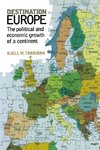
Iceland
Source: Wikipedia. Pages: 24. Chapters: Index of Iceland-related articles, Outline of Iceland, The Living Art Museum, List of spouses of presidents and prime ministers of Iceland. Excerpt: Iceland (; Icelandic: IPA: ) officially Republic of Iceland (Lýðveldið... Viac o knihe
Produkt je dočasne nedostupný
13.29 €
bežná cena: 15.10 €
O knihe
Source: Wikipedia. Pages: 24. Chapters: Index of Iceland-related articles, Outline of Iceland, The Living Art Museum, List of spouses of presidents and prime ministers of Iceland. Excerpt: Iceland (; Icelandic: IPA: ) officially Republic of Iceland (Lýðveldið Ísland) is a European island country in the North Atlantic Ocean on the Mid-Atlantic Ridge. It has a population of about 320,000 and a total area of 103,000 km (39,769 sq mi). The capital and largest city is Reykjavík, with the surrounding areas in the southwestern region of the country being home to some two-thirds of the national population. Iceland is volcanically and geologically active. The interior mainly consists of a plateau characterised by sand fields, mountains and glaciers, while many glacial rivers flow to the sea through the lowlands. Iceland is warmed by the Gulf Stream and has a temperate climate despite a high latitude just outside the Arctic Circle. According to Landnámabók, the settlement of Iceland began in AD 874 when the Norwegian chieftain Ingólfur Arnarson became the first permanent Norwegian settler on the island. Others had visited the island earlier and stayed over winter. Over the following centuries, people of Norse and Gaelic origin settled in Iceland. From 1262 to 1918 it was part of the Norwegian and later the Danish monarchies. Until the 20th century, the Icelandic population relied largely on fisheries and agriculture. In 1994, the nation became party to an agreement that established the European Economic Area, thus allowing it to diversify from fishing to economic and financial services. Iceland has a free market economy with relatively low taxes compared to other OECD countries, while maintaining a Nordic welfare system providing universal health care and tertiary education for its citizens. In recent years, Iceland has been one of the wealthiest and most developed nations in the world. In 2010, it was ranked as the 17th most developed country in the world by the United Nations' Human Development Index, and the fourth most productive country per capita. In 2008, the nation's banking system systematically failed, causing significant economic contraction and poli
- Vydavateľstvo: Chronicle Books
- Formát: Paperback
- Jazyk:
- ISBN: 9781150929601


 Anglický jazyk
Anglický jazyk 




 Nemecký jazyk
Nemecký jazyk 
 Ruský jazyk
Ruský jazyk 



